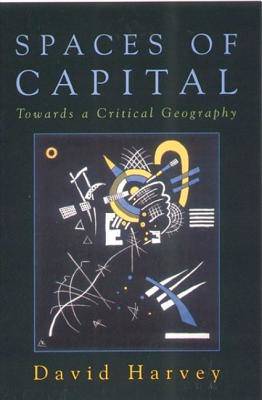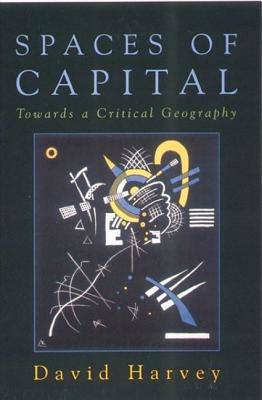
- Afhalen na 1 uur in een winkel met voorraad
- Gratis thuislevering in België vanaf € 30
- Ruim aanbod met 7 miljoen producten
- Afhalen na 1 uur in een winkel met voorraad
- Gratis thuislevering in België vanaf € 30
- Ruim aanbod met 7 miljoen producten
Zoeken
Omschrijving
David Harvey is unquestionably the most influential, as well as the most cited, geographer of his generation. His reputation extends well beyond geography to sociology, planning, architecture, anthropology, literary studies and political science. This book brings together for the first time seminal articles published over three decades on the tensions between geographical knowledges and political power and on the capitalist production of space. Classic essays reprinted here include 'On the history and present condition of geography', 'The geography of capitalist accumulation' and 'The spatial fix: Hegel, von Thünen, and Marx'. Two new chapters represent the author's most recent thinking on cartographic identities and social movements. David Harvey's persistent challenge to the claims of ethical neutrality on behalf of science and geography runs like a thread throughout the book. He seeks to explain the geopolitics of capitalism and to ground spatial theory in social justice. In the process he engages with overlooked or misrepresented figures in the history of geography, placing them in the context of intellectual history. The presence here of Kant, Von Thünen, Humboldt, Lattimore, Leopold alongside Marx, Hegel, Heidegger, Darwin, Malthus, Foucault and many others shows the deep roots and significance of geographical thought. At the same time David Harvey's telling observations of current social, environmental, and political trends show just how vital that thought is to the understanding of the world as it is and as it might be.
Specificaties
Betrokkenen
- Auteur(s):
- Uitgeverij:
Inhoud
- Aantal bladzijden:
- 432
- Taal:
- Engels
- Reeks:
Eigenschappen
- Productcode (EAN):
- 9780748615414
- Verschijningsdatum:
- 1/10/2001
- Uitvoering:
- Paperback
- Formaat:
- Trade paperback (VS)
- Afmetingen:
- 155 mm x 229 mm
- Gewicht:
- 635 g

Alleen bij Standaard Boekhandel
+ 135 punten op je klantenkaart van Standaard Boekhandel
Beoordelingen
We publiceren alleen reviews die voldoen aan de voorwaarden voor reviews. Bekijk onze voorwaarden voor reviews.











